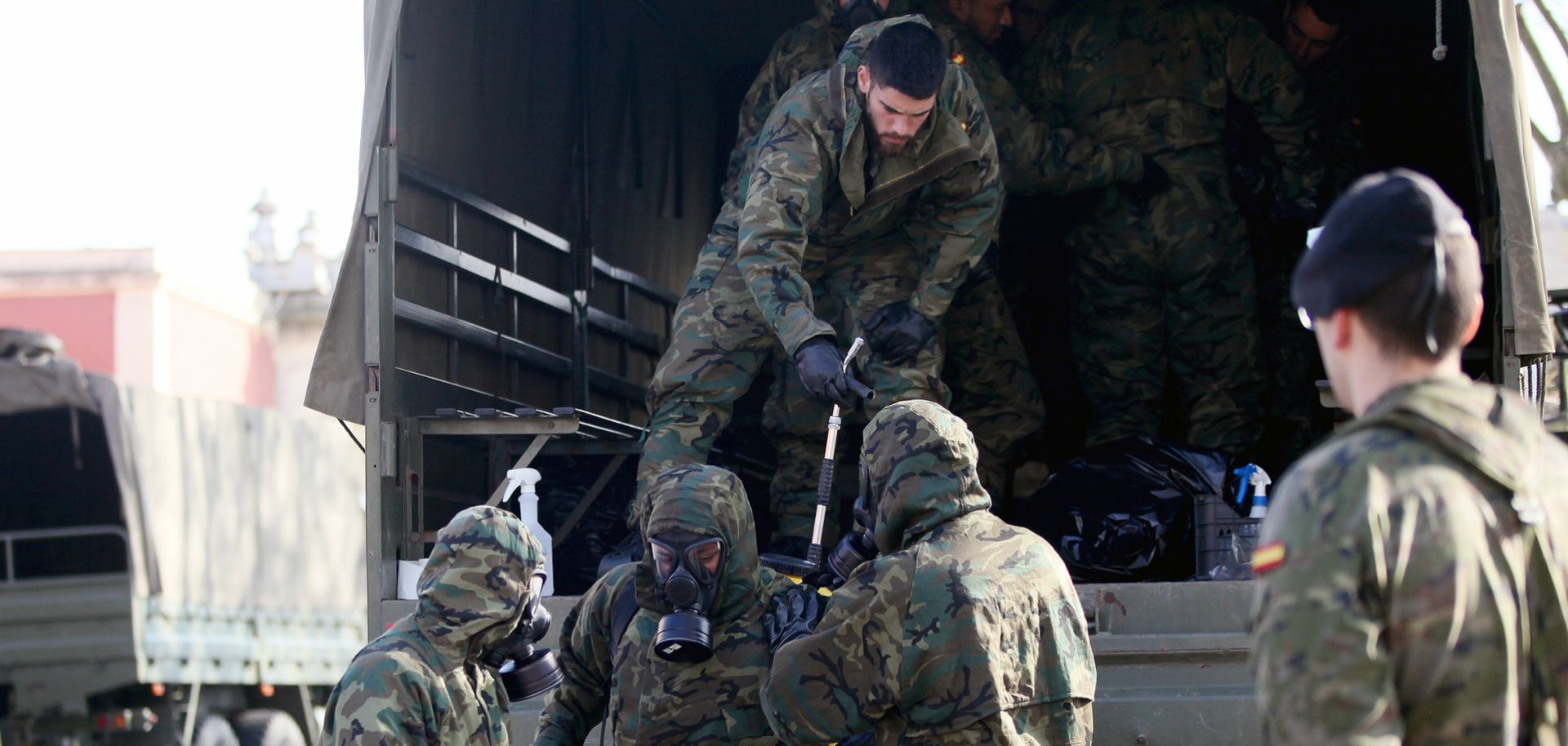ASSESSMENTS
COVID-19: How Pandemics Disrupt Military Operations

Mar 25, 2020 | 10:00 GMT

Soldiers prepare to disinfect a train station in San Sebastian, Spain, to prevent the spread of the coronavirus on March 24, 2020. As of Tuesday, Spain had reported 39,673 confirmed cases of the virus.
(Nagore Iraola/Europa Press via Getty Images)
Highlights
- Measures to contain and respond to the COVID-19 pandemic could significantly impact global military readiness for at least the next several months.
- Even though immediate disruptions to military operations will be temporary, the economic stress resulting from the pandemic could yield long-term setbacks in development programs.
- The potential impact from COVID-19 provides a general template of how future pandemics could affect military capabilities and activites, albeit with different timelines and severity of impact depending on the disease.
Subscribe Now
SubscribeAlready have an account?
